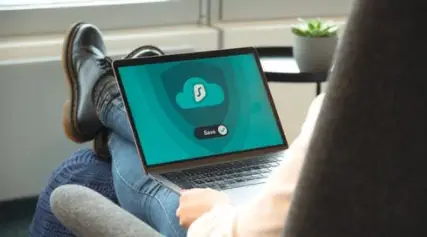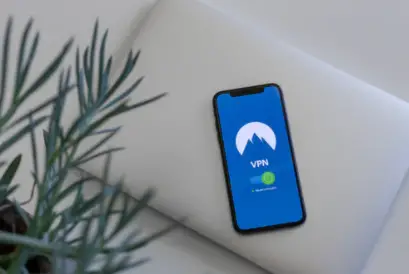Can My ISP See My VPN Traffic?
VPNs are an excellent tool to have by your side when you seek privacy or need to access content from another region, but there are still many questions people have regarding if a VPN can truly keep hidden.
A big talking point is related to VPNs and your ISP. Can your ISP see your VPN traffic?
Your ISP can not see your VPN traffic. It knows you are on a VPN, but it doesn’t know what you are doing on it. A VPN encrypts your data, meaning that nobody can see the sites you have visited or what you’ve downloaded. However, DNS leakage can allow your ISP to see the domains you’ve visited.
We will be going over what your ISP sees when you use a VPN and what you can do to ensure that you are truly anonymous with your VPN. If you are interested in this topic, we encourage you to read further.
The Purpose of a VPN and How It Works
VPNs are growing in popularity as more people are learning how they are being tracked online and what other people can threaten their precious data.
They are also being used as tools to access content that is blocked in their country.
You may have seen various ads advertising VPNs and what you’ll notice is that watching blocked shows on Netflix or another video streaming service is brought up quite a bit.
This is a legitimate use case for a VPN that has helped out many people worldwide.
A VPN can also be used for illegal or grey area activity. Common usage for VPNs is pirating movies and games.
The reason why people use a VPN for this is to avoid receiving a letter in the mail from their ISP, essentially telling them “cut that out.” Without a VPN, your ISP knows what you are doing on the web, whether legal or illegal.
But what if you have a VPN enabled?

How Does a VPN Work?
VPN stands for the virtual private network, and how they work is relatively simple. In simple terms, your internet connection goes through your VPNs private network servers before you access anything else online.
When you access your VPNs servers, your device will operate as if you are connected to your network, and thus you will notice that your IP address has changed, and anyone else looking for your IP will see this changed IP as well.
A VPN makes you completely anonymous, and your real IP or location cannot be traced as a result.
Not even Google will know where you are, and law enforcement won’t be able to trace you through a VPN alone. Criminals get caught through mistakes that reveal who they are.
This is why so many people rely on a VPN these days. They are truly effective in what they set out to do as long as you choose a good VPN service and not just anything you find.
A Quality VPN Makes All the Difference
There are so many VPNs out there. You can find (not literally) a million different ones on your smartphone’s app store, as well as many Chrome extensions and computer programs.
They are everywhere, and getting one is as easy as downloading one and activating it.
But hold off for a second before you do that. Ever wondered why there are so many free VPNs while you see paid ones being advertised, such as NordVPN, ExpressVPN, and Surfshark? There is a reason for that.

These “free VPNs” aren’t operating a charity service. They are out to make money somehow, but how do they turn a profit?
You’ll usually see ads when you use a free VPN, a direct source of revenue for the operator.
But that’s not all. The truth is that we don’t know what these VPN services are doing, which isn’t a good thing.
There is a real possibility your data is being stolen, monitored, etc. All of which is anti-privacy.
Yes, the websites you visit won’t be able to see you, but the VPN itself could share your data elsewhere and release it when requested.
There is no incentive for a free VPN provider to be anything more than a quick way for users to hide from websites.
This differs from the paid VPN services that will cost you around $10 or so a month. They can charge this because they go the extra mile to ensure that no one, not even they, can see your data.
A key thing to look out for is to ensure that the VPN provider has a no-logs policy, which means that your data isn’t being stored.
In turn, they have nothing to give anyone, even if law enforcement goes to them and requests your IP address.
A good VPN provider will also prevent DNS leakage, which is the only way your ISP can see what you are doing while using a VPN.
DNS Leakage Means Your Privacy Is Out the Window
Many folks don’t realize that DNS leakage can compromise your privacy when using a VPN.
DNS stands for Domain Name System and what it does is allow the web to be as easy to use as it currently is. It translates the long numerical codes that make up a website’s address into easily understandable names.
For example, you type in a website’s name, such as DuckDuckGo, and the DNS can direct you to that website’s IP address from that domain name you’ve entered.
Your ISP’s DNS server is what is initially used, but when connected to a VPN, you will be on theirs, hopefully. Not all VPNs use DNS servers, which means your ISP can see the domains you are visiting.
This is as much of a massive security flaw as it sounds and hits home our point of using a quality VPN even if you have to pay a decent amount of money for it. If you value privacy, you don’t want to skimp out.
What VPNs Should You Use?
The big boys in the VPN industry such as NordVPN, Surfshark, and ExpressVPN are no brainers if you want a good VPN that can protect you and is user friendly and convenient to boot.
They are more expensive than some other VPNs, but they can charge more due to their trustworthiness.
We recommend weighing the pros and cons of each to decide which one is best for you, especially if you are going to pay upfront for a year’s worth of service.
ExpressVPN is seen as one of the best for consuming media and online gaming since it is fast, but you can’t go wrong with any of these 3.
If your only goal is to consume content from other regions and not necessarily concerned with privacy, a free or cheaper VPN could work. Just note the security flaws we have mentioned today.
If you would like more information on the best VPNs currently, we recommend watching this video if you have the time:
Conclusion
Your ISP knows you are using a VPN but not what you are doing on it.
The exception to this is when DNS leakage occurs. In this case, your ISP can see the domains you have visited, including illegal stuff that can be incriminating.
Always ensure your VPN provider has a no-logs policy and can promise that DNS leakage won’t occur, and if you need quick advice on what VPN to use, ExpressVPN, NordVPN, and Surf Shark are all great choices.
If you would like to learn more about internet privacy, we recommend reading Your Safety and Privacy Online.

